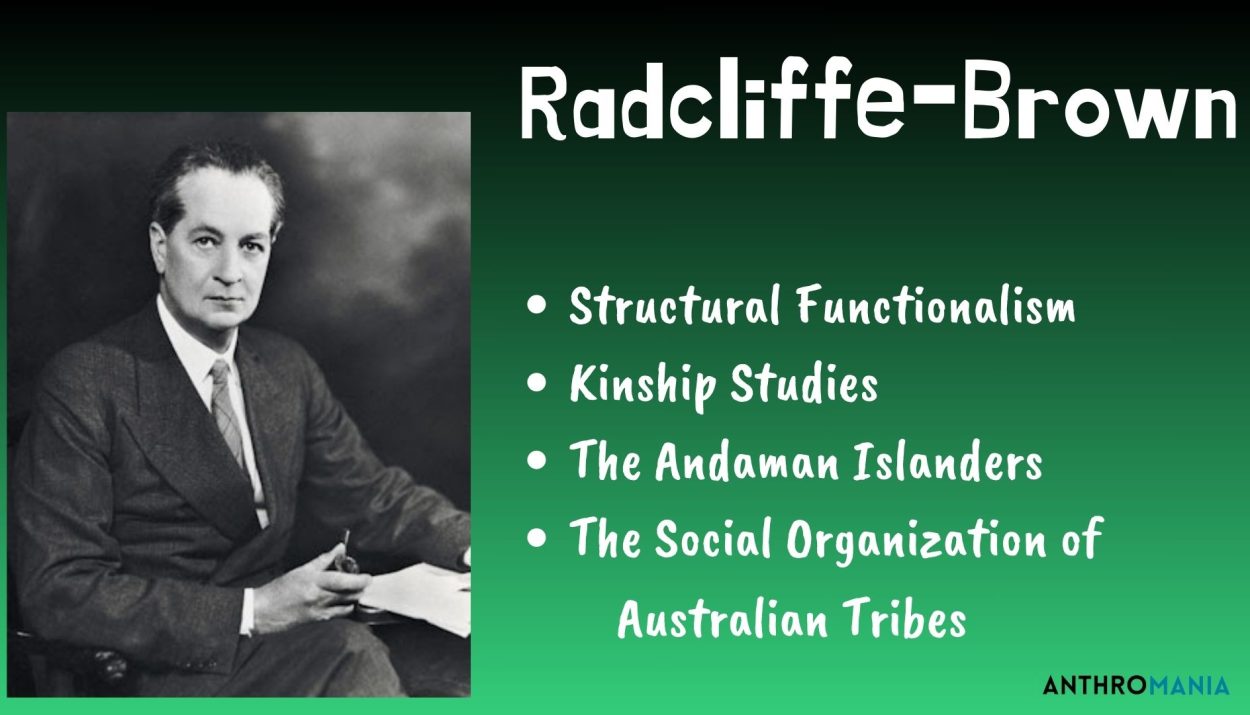Anthropology, the study of human societies and cultures, owes much of its depth to visionaries like Alfred Radcliffe-Brown, a British social anthropologist. In this exploration, we unravel the profound impact of Radcliffe-Brown’s theories and contributions to the field.
Early Life and Academic Journey
Born in 1881 in Birmingham, England, Radcliffe-Brown’s early life laid the foundation for his future endeavours in anthropology. Tracing his academic journey from the University of Cambridge to his groundbreaking work provides insight into the man behind the theories.
His notable career path led him to the Pacific among the Andaman Islanders (1906–08), where his fieldwork earned him a fellowship at Trinity College, Cambridge. Subsequently, between 1910 and 1912, he carried out another field study in Western Australia, applying his innovative theory of “structural functionalism.”
In 1916, Radcliffe-Brown assumed the role of director of education for the Kingdom of Tonga. Later, from 1920 to 1925, he held the position of professor of social anthropology at the University of Cape Town. During this period, he established the School of African Life and Languages, reinforcing his influential role in shaping the discipline. Subsequently, he became a professor at the University of Sydney from 1925 to 1931. During this time, Radcliffe-Brown founded the journal Oceania and orchestrated extensive field research in the region.
In 1931, Radcliffe-Brown took on the role of a visiting professor of anthropology at the University of Chicago. Later, in 1937, he returned to England to serve as a professor of social anthropology at Oxford. His significant contributions continued until his passing in London in 1955.
Structural Functionalism: Redefining Anthropological Thought
Radcliffe-Brown’s most enduring legacy is perhaps his development of Structural Functionalism. This theory revolutionized the way anthropologists understand societies by focusing on the interrelated functions of social institutions.
Significantly influenced by Émile Durkheim’s research on global social phenomena, Radcliffe-Brown adopted the perspective that social institutions should be approached as scientific objects. In his view, institutions play a crucial role in upholding a society’s global social order, akin to the organs in a body. His investigations into social functions focused on understanding how customs contribute to the overall stability of a society.
In his study of “The Andaman Islanders”, Radcliffe-Brown asserts that every custom and belief holds a specific role in the community’s social fabric, akin to how each organ in a living body contributes to the overall functioning of the organism.
Structural-functionalism posits that society’s fundamental purpose is to uphold its social framework. Consequently, intricate networks of social relations and institutions emerge, taking precedence over culture. In this social structure, the individual holds minimal significance, as the society governs the configuration and organization of the collective.
Read- Structuralism
Kinship Studies: Unraveling Social Ties
A significant aspect of Radcliffe-Brown’s work lies in his contributions to kinship studies. His exploration of family ties and social structures provides a nuanced understanding of how human relationships shape societies. He applied structural-functionalism to examine kinship, mythology, and totemism within the framework of social organization.
Legacy and Notable Publications
While later anthropologists did not embrace Radcliffe-Brown’s theories directly, his research has wielded substantial influence on numerous scholars, contributing to advancements in the comprehension of human societies globally.
Breaking away from conventional anthropology, he shifted the focus towards a functional examination of societal structures, developing broad theoretical concepts substantiated by field research findings. This approach left a lasting impact, influencing subsequent generations of researchers who either embraced or scrutinized his ideas.
His influence extended globally, touching scholars on nearly every continent. This widespread impact played a crucial role in diminishing ethnocentrism, fostering connections between American and British anthropology on one side and the anthropologies of other nations on the other.
Some of his important publications include “The Andaman Islanders (1922),” “The Social Organization of Australian Tribes (1930),” “A Natural Science of Society (1957),” and “The Methods of Ethnology and Social Anthropology (1923),” among many more.
References
A.R. Radcliffe-Brown- Britannica
FORTES, MEYER. 1956. ‘Alfred Reginald Radcliffe-Brown, F.B.A., 1881-1955 a Memoir’. Man Vol. 56, pp. 149-153. (available online: http://www.therai.org.uk/archives-and-manuscripts/obituaries/alfred-reginald-radcliffe-brown).
“Radcliffe-Brown, A. R. .” International Encyclopedia of the Social Sciences. . Encyclopedia.com. 15 Nov. 2023 <https://www.encyclopedia.com>.







